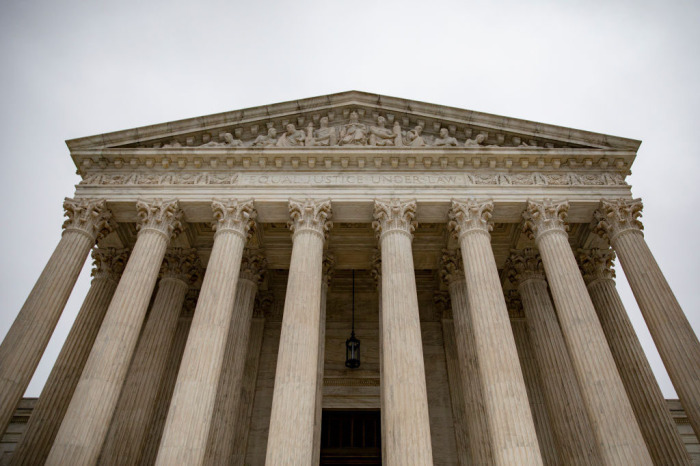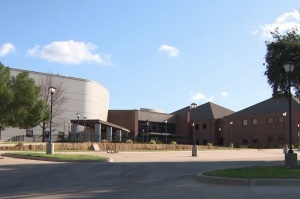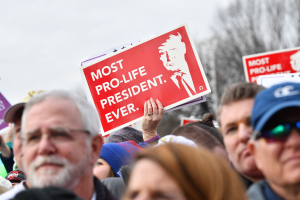Democrats introduce bill to add 4 seats to the Supreme Court; Pompeo calls effort 'political games'

Democrats in U.S. Congress have announced controversial legislation that would add four seats to the U.S. Supreme Court in response to the current conservative majority. However, Speaker of the House Nancy Pelosi has reportedly said she won’t bring such legislation to the floor for a vote.
Introduced Thursday, the bill is known as the Judiciary Act of 2021 and would increase the number of justices on the Supreme Court for the first time since the 19th century.
Sponsors include House Judiciary Committee Chairman Jerrold Nadler of New York, Chairman of the Judiciary Subcommittee on Courts, Intellectual Property, and the Internet Hank Johnson of Georgia and Rep. Mondaire Jones of New York. In the Senate, the bill is backed by Sen. Edward J. Markey of Massachusetts.
In a statement, Markey claimed that “Republicans stole the Court’s majority, with Justice Amy Coney Barrett’s confirmation completing their crime spree.”
“Senate Republicans have politicized the Supreme Court, undermined its legitimacy, and threatened the rights of millions of Americans, especially people of color, women, and our immigrant communities,” he argued.
“This legislation will restore the Court’s balance and public standing and begin to repair the damage done to our judiciary and democracy, and we should abolish the filibuster to ensure we can pass it.”
Over the past couple of years, some progressive politicians and activists have pushed to add more justices to the Supreme Court to counter what is now a 6-3 conservative majority. During his only term in office, President Donald Trump appointed three justices to the Supreme Court. Those confirmations came after Republicans in the Senate blocked President Barack Obama’s 2016 nomination of Merrick Garland following Justice Antonin Scalia’s death.
Following Justice Ruth Bader Ginsburg’s death, Democrats were upset that the Republican-controlled Senate quickly confirmed Barrett to the court last October just days before the 2020 election but never held a confirmation vote for Garland even though he was nominated months before the 2016 election.
Last week, President Joe Biden signed an executive order creating a commission comprised of 36 individuals to assess the Supreme Court’s current status and whether to reform it.
House Speaker Pelosi reportedly declared Thursday that she would not bring the bill to the floor for a vote.
According to CNN’s Manu Raju, Pelosi responded with a “no” when asked if she would bring a bill to expand the Supreme Court to the floor. However, she reportedly said that she backs the White House commission to study the idea.
“I think it’s an idea that should be considered,” she reportedly said. “It’s not out of the question ... I have no intention to bring it to the floor.”
Former White House Press Secretary Kayleigh McEnany is not sold by Pelosi's remarks.
"Do not fall for the Left's game. Dems put forward a Supreme Court packing bill. Pelosi not there yet but says she supports Biden 'bipartisan' commission," McEnany tweeted. "Commission is 2-to-1 stacked w/ liberals Supporting commission = Supporting court packing."
Former Secretary of State Mike Pompeo criticized the legislation in a tweet Thursday morning.
“Our Supreme Court Justices uphold the rule of law, not the emotion of law,” he wrote. “Packing the Supreme Court to tilt favorable outcomes brings partisan politics into the courtroom. SCOTUS is the last place we need political games.”
Republican Sen. Lindsey Graham of South Carolina called expanding the Supreme Court a “terrible idea” and vowed to vote against it.
Critics of the plan to pack the high court include Walter Shapiro of The Brennan Center for Justice, who wrote in 2019 that the plan seems “like a banana-republic attempt to change the rules in the middle of the game.”
Shapiro drew a parallel to President Franklin Roosevelt’s attempt to pack the court when its conservative majority often struck down his New Deal efforts.
He noted that, eventually, Roosevelt abandoned his effort in part because the makeup of the Supreme Court began to change more in his favor without the need to add justices.
“The principled argument against 21st-century court packing is that it is dangerous to tamper with the mechanisms of democracy to thwart a single political figure,” wrote Shapiro.
“For times change while power eventually ebbs. But restructuring the Supreme Court could have lasting repercussions long after the current crisis is as forgotten as the mid-1930s conservative decisions that jeopardized the New Deal.”




























